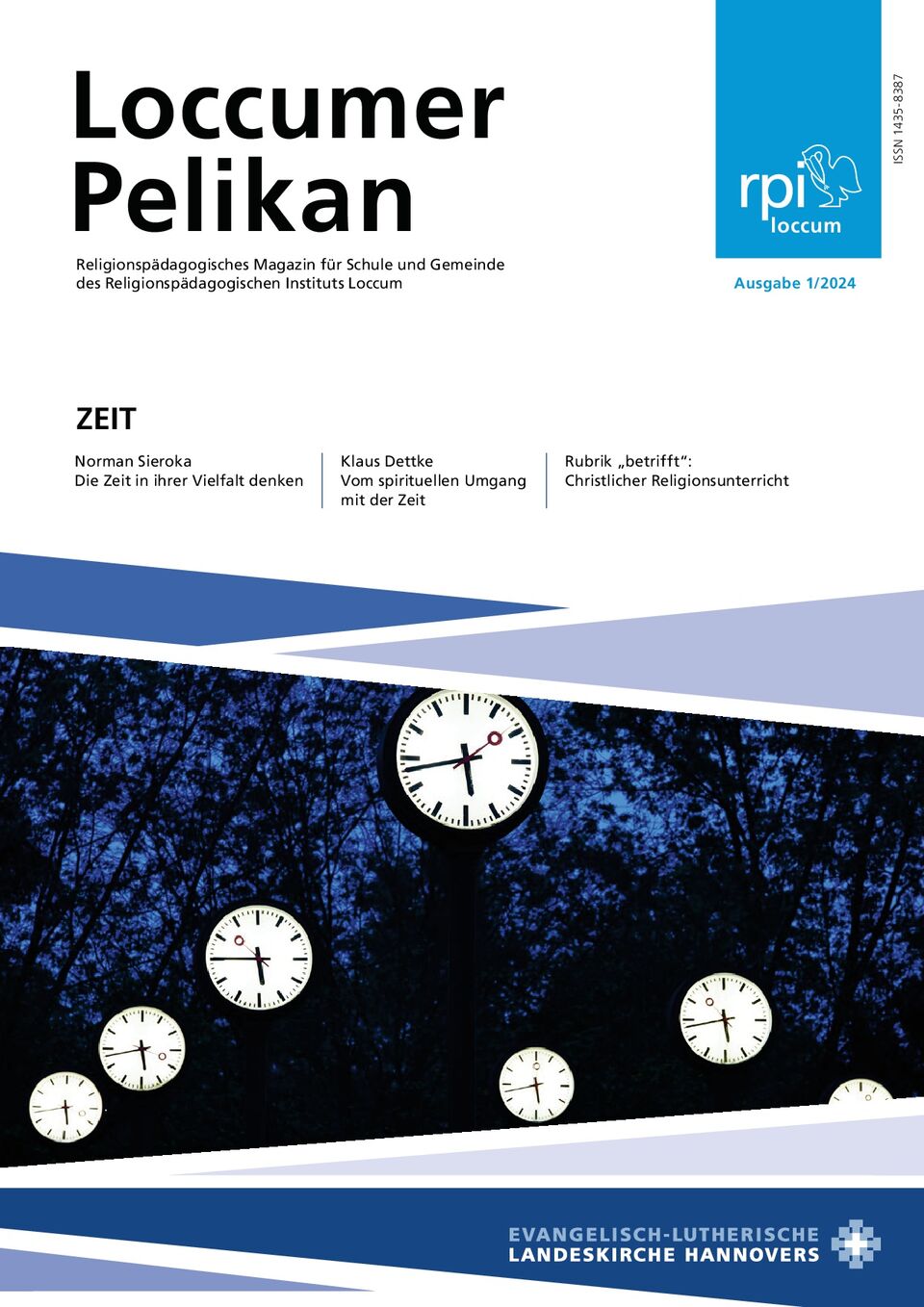
Corona infections, childhood memories, presidential elections, avalanches: everything we experience and witness and all external events can be ordered in time – according to their succession. Time is therefore an ordering parameter, or dimension, of events. There is disagreement about what else time is on the “battlefield of eternal disputes” – as Kant once called philosophy (or more precisely: metaphysics): Is time relative or absolute? Is it continuous or discrete? Is it a substance in its own right or is it constituted by relationships between events?
The Paper is available at the Loccumer Pelikan Website.
Loccumer Pelikan 1(24). 4-8.